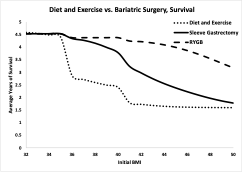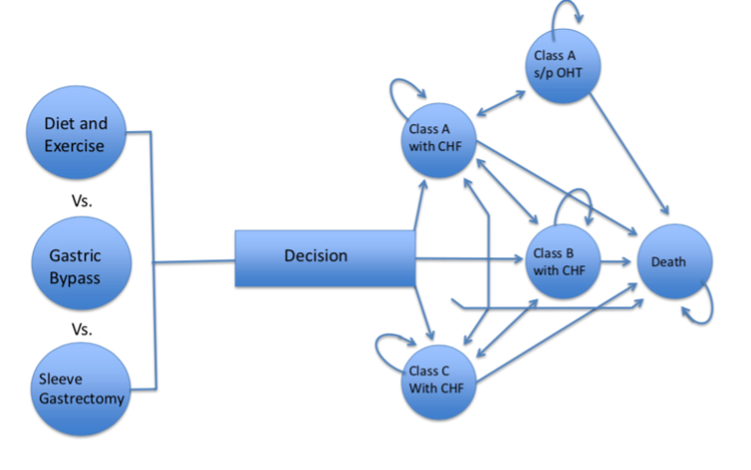Ventricular Modeling Following Bariatric Surgery Decreases Need for Heart Transplantation
1Transplantation Surgery, University of Colorado Hospital, Aurora, CO, 2General Surgery, Hospital of the University of Pennsylvania, Philadelphia, PA, 3General Surgery, Thomas Jefferson University Hospital, Philadelphia, PA, 4Cardiothoracic Surgery, University of Colorado Hospital, Aurora, CO, 5General Surgery, Hospital of the University of Pennsylvania, Aurora, CO
Meeting: 2022 American Transplant Congress
Abstract number: 1120
Keywords: Heart, Heart failure, Heart transplant patients, Obesity
Topic: Clinical Science » Heart » 63 - Heart and VADs: All Topics
Session Information
Session Time: 7:00pm-8:00pm
 Presentation Time: 7:00pm-8:00pm
Presentation Time: 7:00pm-8:00pm
Location: Hynes Halls C & D
Session Information
Session Time: 7:00pm-8:00pm
 Presentation Time: 7:00pm-8:00pm
Presentation Time: 7:00pm-8:00pm
Location: Hynes Hall C
*Purpose: For obese patients with congestive heart failure (CHF), aggressive weight loss has been associated with ventricular remodeling. Many have suggested offering bariatric surgery for patients with obesity and CHF. However, it remains unclear whether the risks of bariatric surgery are balanced by improvements in cardiovascular outcomes.
*Methods: A Markov state transition model was created to simulate the life of morbidly obese patients [BY1] with CHF with ejection fraction (EF) 30% who were deemed ineligible to be waitlisted for heart transplantation unless they achieved a BMI less than 35 kg/m2. Life expectancy following diet and exercise (DE), Roux-en-Y gastric bypass (RYGB), and sleeve gastrectomy (SG) was estimated . Base case patients were defined as having a pre-intervention BMI of 45 kg/m2. Sensitivity analysis of initial BMI was performed. Markov parameters were extracted from literature review.
*Results: RYGB improved survival compared with both SG and DE. RYGB patients had lower rate of transplantation and when they needed transplant, received their transplants more quickly, leading to improved mean long-term survival. Base case patients who underwent RYGB gained 2.2 additional years of life compared with patients who underwent SG and 10.3 additional years of life compared with DE. SG patients gained 6.2 years of life compared with DE.
*Conclusions: Bariatric surgery was associated with improved survival compared to lifestyle modification by decreasing the need for transplantation due to improvements in EF, and also increasing access to transplant when needed due to lower average BMI. CHF with reduced EF should not be considered an absolute contraindication for bariatric surgery.
To cite this abstract in AMA style:
Choudhury R, Rouhi A, Hoeltzel G, Bababekov Y, Suarez-Pierre A, Yule A, Vigneshwar N, Williams N, Dumon K, Nydam T. Ventricular Modeling Following Bariatric Surgery Decreases Need for Heart Transplantation [abstract]. Am J Transplant. 2022; 22 (suppl 3). https://atcmeetingabstracts.com/abstract/ventricular-modeling-following-bariatric-surgery-decreases-need-for-heart-transplantation/. Accessed July 3, 2025.« Back to 2022 American Transplant Congress


